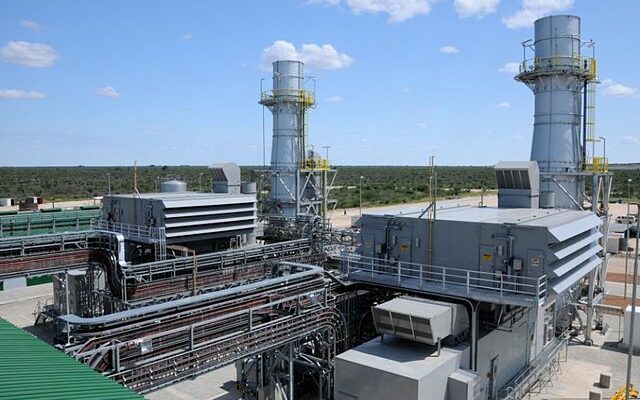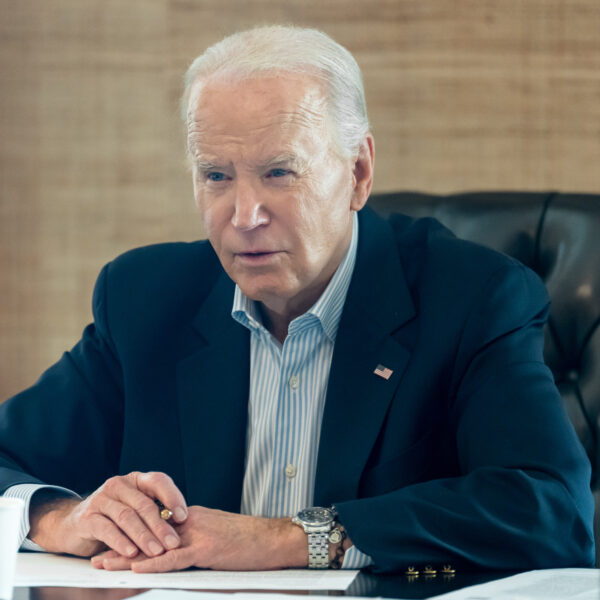
Last month, an assessment by the North American Electric Reliability Corporation recently found that power grids supplying nearly two-thirds of the country’s electricity are “at risk of energy shortfalls.”
The Washington Times reports that “NERC officials warned Congress that the threat will likely worsen unless the U.S. “recalibrates” its effort to transform the nation’s power grid to renewable energy by focusing on reliability.
‘Our assessments demonstrate that the electric grid is operating ever closer to the edge, where more frequent and more serious disruptions are increasingly likely,’ James B. Robb, NERC’s president and chief executive officer, told the Senate Energy and Natural Resources Committee on June 1.
The renewable power scheme is forcing California and other states to rely on energy transfers from other regions, which might not be available, to meet demand during periods of high usage.”
The failure of Biden’s “green energy” initiatives and the Democrat’s desire to turn the United States into California, however, is not stopping the White House from making sure that you have a good backup plan for when the power goes out. Not content to meddle with how we cook our food, the administration now has its focus on gas-powered backup generators.
A proposed Consumer Product Safety Commission rule limits the amount of carbon monoxide a product can emit, with the commission admitting that 95 percent of portable gas generators on the market cannot comply with its new standard. As a result, industry leaders say, the rule will prompt widespread generator shortages, as manufacturers only have six months to design generators that meet the proposed regulation. That process normally takes years, Portable Generator Manufacturers’ Association executive director Susan Orenga told the Washington Free Beacon.
The rule proposal comes just months after Biden-backed commissioner Richard Trumka Jr. teased a similar regulatory ban on gas stoves, which he called a “hidden hazard.” It also comes as many Americans face an increased risk of power outages as the country increasingly relies on green energy to produce its electricity. A whopping two-thirds of North America faces an “elevated risk” of power blackouts this summer, a leading grid watchdog found in May, a vulnerability that stems from America’s increase in green power generation and decrease in fossil fuel power plants. California, for example, saw power outages in the summer of 2022 as electricity demand surged.
Portable gas generators can help those who experience a power outage keep the lights on, and nearly five million households use them. Should the Biden administration finalize its rule, however, the generators could become difficult to obtain. The commission’s rule prohibits manufacturers from stockpiling non-compliant generators prior to the rule’s enactment.
Beyond the Consumer Product Safety Commission, President Joe Biden’s Energy Department has unveiled a slew of environmental regulations to fight climate change. The department says its proposed gas stove rule, for example, would effectively ban half of all models on the U.S. market from being sold. The department has also proposed or finalized energy efficiency rules targeting washing machines, refrigerators, and lightbulbs. “Collectively,” the department said in February, “these energy actions … support President Biden’s ambitious clean energy agenda to combat the climate crisis.”
Generator manufacturers told NBC News that their products are not dangerous, so long as users follow the safety guidelines in instruction manuals, “which include keeping the machines outside, away from doors and windows. But safety advocates say those instructions aren’t always easy to follow, because the machines can’t be operated in rain or snow. And a review of user manuals by the news organizations found that they can provide conflicting messages. Some manuals suggest keeping generators a shorter distance from windows or doors than the 20-foot minimum recommended by the CPSC, while others provide more general guidance such as keeping the machines ‘far away’ from homes.
The new push for mandatory rules has been years in the making. In 2016, after concluding that generator manufacturers could save lives by making machines that emit less carbon monoxide, the CPSC announced plans to make the modification mandatory.
But before the CPSC could impose the rule, industry-friendly federal law required the agency to first allow generator manufacturers to come up with their own safety upgrades and to study whether those voluntary measures were enough to protect consumers.
Industry representatives instead proposed a cheaper safety upgrade: switches that would automatically turn the devices off when carbon monoxide builds up to an unsafe level. They said the shut-off switches would prevent 99 percent of deaths, but safety advocates argued that that claim was exaggerated.”
Biden has an obsession with “green energy” and has been trying to reorder the entire American economy, along with foreign policy, around it by spending billions of taxpayer dollars to prop his initiative up.
Not all of the president’s supporters are on board with his push, though. Reuters noted, ” President Joe Biden traveled on Thursday to Philadelphia to pitch the promise of a green economy to union workers skeptical that the solar, wind and electric vehicle industries can deliver the same economic punch for organized labor as fossil fuel-powered refineries and power plants.
Biden took a small tour of Philadelphia’s shipyard and praised the upcoming construction of the Acadia, a union-built vessel that will support hundreds of jobs and be used to help build offshore wind farms.
About a dozen union workers in the Philadelphia region Reuters spoke to questioned whether the new industries can produce a similar number of jobs at the same high wage scale.
They may have good reason to worry.
Roughly 80% of the more than 50 EV battery, solar panel and other factories announced since passage of the Inflation Reduction Act in August are in states with laws that make it harder for workers to unionize, a Reuters analysis published this year found.”
Biden recently angered UAW officials with an announcement that the federal government would be giving Ford Motor Company billions of dollars in loans to build three electric vehicle battery plants.
The Detroit Free Press wrote, “The head of the UAW on Friday bashed the Biden administration’s decision this week to give conditional approval for a multibillion-dollar loan package to a joint venture between Ford Motor and a South Korean battery maker without including wage, work conditions and retirement demands upfront.
“We have been absolutely clear that the switch to electric engine jobs, battery production and other EV (electric vehicle) manufacturing cannot become a race to the bottom,” UAW President Shawn Fain said. “Not only is the federal government not using its power to turn the tide — they’re actively funding the race to the bottom with billions in public money.”
“Why is Joe Biden’s administration facilitating this corporate greed with taxpayer money?” Fain continued in the statement, which also called the loan a “handout.”
Fain and the UAW have made it clear they want to organize EV battery plants, since the move to manufacturing EVs will likely result in fewer line workers being needed to assemble the cars and trucks. As part of that, they have been pressuring the Biden administration and Democrats in Congress to link the availability of loans and other awards to companies’ willingness to be organized by labor and otherwise hit wage and benefit demands.”
[Read More: Trial Of The Century Coming Sooner Than Thought]











